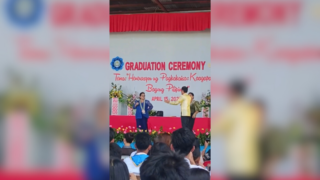Regarding the editorial, “Mañanita for the general” (5/16/20), which referred to the gathering of some police officials to celebrate the birthday of National Capital Region Police Office chief Maj. Gen. Debold Sinas in the midst of the COVID-19 lockdown: While Sinas has apologized only after drawing much flak, his apologists led by Interior Secretary Eduardo Año said in an interview that the gathering was “not a party” but an observation of a tradition in the Philippine Military Academy.
It appears to me that Año did not bother to consult Mr. Webster as to how “party” is defined. Here are some of the many definitions Mr. Webster has on “party”: 1) a group meeting together socially to accomplish a task; 2) a group assembled for amusement or recreation, and; 3) a gathering for social entertainment or the entertainment itself of a specific nature, (birthday party, etc.).
Sinas’ apology is a confirmation that the affair was wrong and that he was sorry it happened. He is a part of the Philippine National Police, which enforces laws, rules, and regulations to protect the citizenry from harm and danger that may result in injury or death. But many elements of the PNP perform their task overzealously such that any violations are dealt with blindly, like that one incident where a policeman killed a citizen they were supposed to protect.
Most of the populace in this country are in awe, not only of the invisible but deadly enemy they confront, but of the many government officials who enforce the laws and regulations with gusto, most of the time overstepping their authority when the perceived violators are lowly people whose deprivation of mobility means prevention of their right to make a living.
Meanwhile, many of the “enforcers” shamelessly commit the offense they are supposed to prevent, and their apologists see nothing wrong in that.
Ramon Mayuga
ramon.mayuga49@gmail.com




